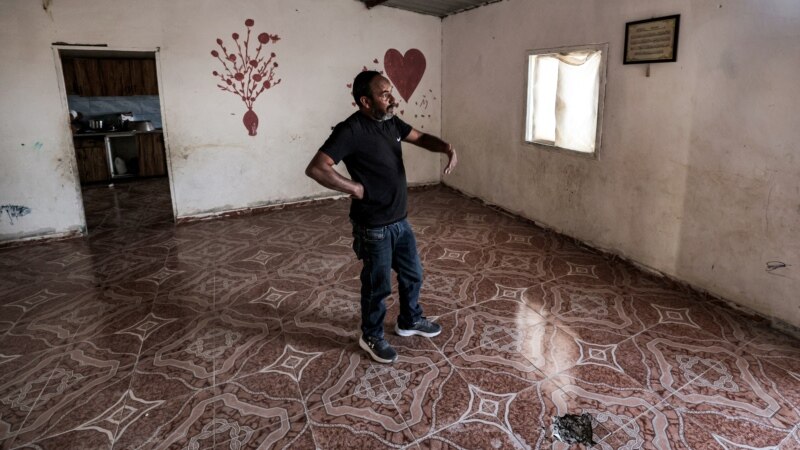French President Emmanuel Macron said on Monday that the French government would make every effort to avoid escalating the situation between Israel and Iran following Iranian drone and missile attacks on Israel.
In interviews with French media outlets BFM-TV and RMC, Macron also urged Israel to isolate Iran rather than escalate the situation.
German Chancellor Olaf Scholz issued a similar message on Monday, warning Iran against further attacks on Israel while calling on Israel to play a role in de-escalating the situation.
Israeli authorities announced that educational activities would resume on Monday and restrictions on large gatherings would be lifted in most places.
In Iran, state media said operations at the country’s airports had returned to normal after being suspended due to Israeli airstrikes.
Iran launched the attack in retaliation for a suspected Israeli attack on the Iranian consulate in Damascus on April 1. Israel has neither confirmed nor denied responsibility for the attack, which killed several Iranian military commanders.
Israel warned Iran against launching any retaliatory strikes from Iranian soil. Iran said its response was limited to Saturday night’s attack and warned Israel and the United States that it would take larger actions if Israel attacked Iran now.
Diplomats condemned the Iranian attack while working to prevent the situation from escalating into a wider conflict.
U.S. Secretary of State Antony Blinken and Defense Secretary Lloyd Austin held a conference call on Sunday with the defense ministers of Saudi Arabia, Turkey, Egypt and Jordan.
The Group of Seven (G7) “unequivocally” condemned Iran’s attack on Israel after talks on Sunday.
The Italian presidency of the G7 issued a statement saying, “We express our full solidarity and support for Israel and its people and reaffirm our commitment to its security.”
Israel said on Sunday that Iran fired 320 warheads at it in an “unprecedented attack” but that its air defenses, along with those of the United States and other supporting countries, shot down 99 percent of them.
“Iran’s actions have further exacerbated instability in the region and may trigger an uncontrolled escalation of the regional situation,” the G7 statement said. “This situation must be avoided.”
The G7 meeting on Sunday was convened by Italy, which holds the rotating presidency of the group. Its members also include the United Kingdom, Canada, France, Germany, Japan and the United States.
Israel Defense Forces spokesman Lt. Col. Peter Lerner told CNN that Iran targeted a military base that it said was used in the April 1 attack on the Iranian consulate in the Syrian capital Damascus that killed two Iranians. The general died. He said the overnight air strikes “did not cause much damage.”
Lerner said Iran launched 170 explosive drones, 120 ballistic missiles and 30 cruise missiles into Israel, most of which came directly from Iranian territory, but some were launched by Iranian armed proxies in Iraq and Yemen. .
White House national security spokesman John Kirby told CNN that the “vast majority” of the warheads were launched from Iran. He said “it is impossible for them to do anything without violating international airspace” and they would fly planes over other countries in the region to target Israel.
Some projectiles landed in Israel, but most were shot down before reaching Israeli airspace.
A young Arab Israeli girl was hit by shrapnel and seriously injured, the only reported casualty, officials said.
Kirby said that while the United States helped shoot down incoming Iranian warheads, it had told Israel “that it would not participate in an attack on Iran.”
Israeli Prime Minister Benjamin Netanyahu has convened his war cabinet to discuss the response to the Iranian attack.
“We intercept, we repel, and together we will win,” Netanyahu said on social media.
Centrist war cabinet minister Benny Gantz said Israel would respond to the attack.
“We will build a regional alliance and charge Iran prices in a way and at a time that suits us,” Gantz said.
Iran urged Israel not to retaliate against the attack.
The Iranian mission to the United Nations posted on the social media platform X that “the matter can be considered to be over.”
“However, if the Israeli regime makes another mistake, Iran’s response will be even harsher,” the delegation said.
The airstrikes on Israel from Iranian territory marked a major escalation in the conflict between regional powers and prompted U.S. forces to take action in support of Israel.
In a message to VOA, Israeli Reserve Brig.-Gen. Gen. Jacob Nagel, Netanyahu’s former national security adviser, said Israeli forces intercepted the Iranian missile with assistance from the United States, Britain, Jordan and Saudi allies.
A U.S. military official confirmed to VOA that the U.S. military shot down an Iranian drone targeting Israel.
U.S. President Joe Biden spoke with Netanyahu on Saturday night. The official said Biden’s national security team “will continue to work with partners in the region to prevent further escalation.”
VOA’s Michael Lippin, United Nations correspondent Margaret Beshear and national security correspondent Jeff Seldin contributed to this report. The Associated Press and Reuters provided some information.
Follow us on Google news ,Twitter , and Join Whatsapp Group of thelocalreport.in
